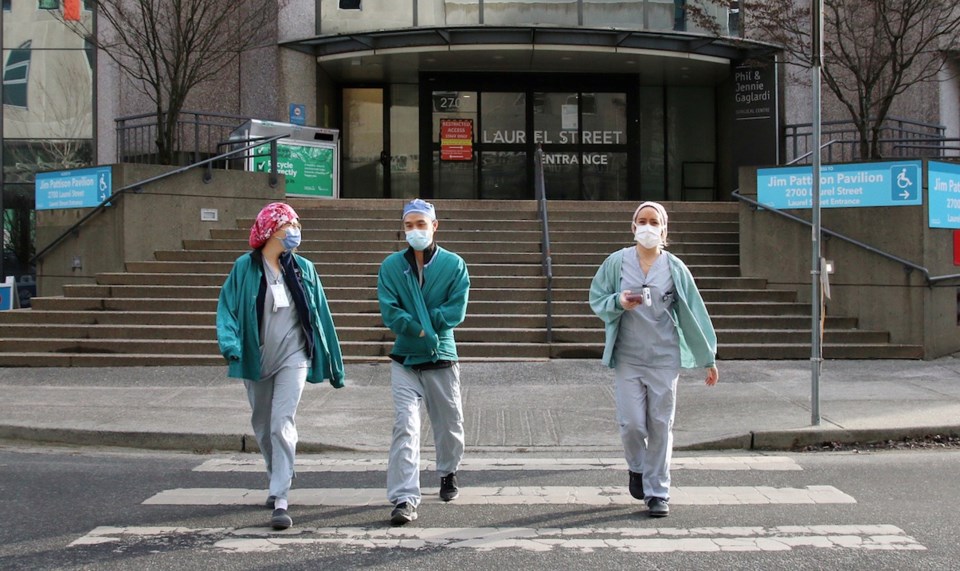After two days when more than 1,000 people with COVID-19 were in B.C. hospitals, that number has dipped below that threshold, to 988.
This is the fourth-highest number so far in the pandemic, and it comes a day after Provincial Health Officer Bonnie Henry told media that she believes that the province's number of COVID-19 hospitalizations had peaked.
There were 1,048 people known to have COVID-19 in B.C. hospitals on Monday. That number then fell to 1,035 yesterday.
Of those patients, 136 are in intensive care units (ICUs), which is down by three from yesterday. The reason for that decline may be that 18 people with COVID-19 have died in the past day, although the government does not break out how many of those deaths were people in ICUs.
Including the first known COVID-19 death in Canada, which was recorded in B.C. in March 2020, B.C. has a pandemic death toll of 2,643.
Health Minister Adrian Dix yesterday said 9,358 of B.C.'s 11,582 acute-care hospital beds (80.8 per cent) are full, while 478 of 728 ICU beds are full (65.6 per cent.) Hospitals were 103.5% full pre-pandemic, Dix has often said. Part of the reason hospitals are emptier now is that thousands of surgeries have been postponed.
Between Jan. 23 and Jan. 29, for example, B.C. health authorities postponed 870 non-urgent scheduled surgeries, Dix said.
Unvaccinated people are disproportionally impacted by the current wave of COVID-19, which is about 95% the Omicron strain, although the disparity is a lot less than with the previous Delta strain.
Between Jan. 25 to Jan. 31, people not fully vaccinated accounted for 25.2% of COVID-19 cases, and between Jan. 18 and Jan. 31, they accounted for 31.7% of COVID-19 hospitalizations.
The counts of newly discovered cases have lost value as an indicator of how serious COVID-19 is in B.C. because vaccinated people with mild symptoms have been told to not get tested, and to simply self-isolate.
Regardless, health officials detected 1,776 new infections in the past day, lowering the number of known active cases by 2,343, to 25,959.
Henry has stressed in recent weeks that older British Columbians, particularly those aged older than 80, are most vulnerable to severe illness and death.
As such, it is good news that there are no new known outbreaks at health-care facilities or seniors' homes. The outbreak at Veterans Memorial Lodge in Victoria has been declared over, leaving 54 active outbreaks at other such facilities.
The province has been changing how it categorizes outbreaks, however, and naming a situation as an outbreak is up to regional medical officers. The previous method was to consider a situation to be an outbreak when one patient contracts the virus, or transmission is known to have taken place in a home.
Provincial data show 4,483,908 B.C. residents have had at least one dose of vaccine, while 4,191,488 are considered fully vaccinated with two doses. There were 26,472 people given booster, or third, doses of vaccine in the past day, for a total of 2,178,899.
The B.C. government last year estimated that the province's total population is 5,147,712. Hence, Glacier Media's calculation is that almost 87.1 per cent of B.C.'s total population has had at least one dose of vaccine, and 81.4 per cent of the province's total population has had two doses. Nearly 42.3 per cent have had their booster doses. •



